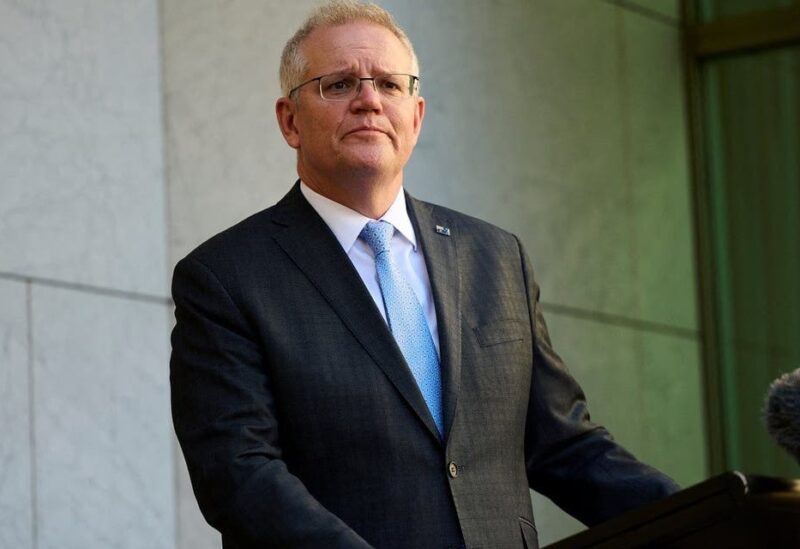
Australian Prime Minister Scott Morrison
At a virtual summit on Thursday, Australia and Japan are due to sign a pact to improve defense and security cooperation, the latest step to bolster relations despite China’s expanding military force and economic weight in the Indo-Pacific region.
Australian Prime Minister Scott Morrison stated that the two leaders would sign a Reciprocal Access Agreement, which will provide a framework for the two nations’ military forces to collaborate for the first time.
Follow our Google News channel online or via the app to stay up to date on the latest news.
“This treaty will be a signal of our two countries’ commitment to working together to solve the common strategic security challenges we confront, as well as to contribute to a safe and stable Indo-Pacific,” Morrison said.
The expanded security relations build on efforts by the United States, Japan, India, and Australia, known as the Quad, to address common concerns about China, such as its pressure on Taiwan, trade disputes, and regional freedom of navigation.
China replied by emphasizing the importance of bilateral treaties in fostering regional trust, peace, and stability.
When questioned about the deal, China’s foreign ministry spokesperson Wang Wenbin said at a daily press briefing on Wednesday, “It should neither target or hurt any third party interests.”
Australia and Japan will also examine ways to expand government and industry relationships in areas such as sustainable energy, key technology, and materials.
“Our collaboration also includes an expanded Quad agenda with India and the US, as well as our common technology-led strategy to lowering carbon emissions,” Morrison added.
At the conference, “shared significant concerns will be tackled candidly,” according to Japan’s senior government spokesperson.
“Japan-Australia relations will be strengthened further, and we will reaffirm our collaboration toward the achievement of a free and open Indo-Pacific,” Chief Cabinet Secretary Hirokazu Matsuno told reporters on Wednesday.
Kishida announced on Tuesday that he will forego abroad trips until the new session of parliament begins on January 17 in order to focus on setting out anti-pandemic measures. According to media accounts, he had previously intended to visit Australia in person.